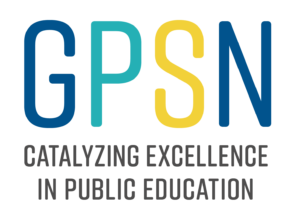We spoke with budgeting leaders across the district to better understand the process and where advocates can have the greatest impact on decisions.
Budget Insights: An Overview of the Los Angeles Public Education Budget Process for Advocates is a new briefing that provides a practical guide for advocating around LAUSD’s annual budget process. The complex technical processes behind district budgeting can seem impenetrable to the public. This briefing aims to demystify the key steps in LAUSD’s budget timeline and equip advocates to effectively engage district leadership on critical resource allocation decisions that impact educational equity and student outcomes.
Some major takeaways include: The majority of education dollars come from the state budget, meaning LAUSD is subject to volatility in California’s revenue system. Most state K-12 funds are allocated through the Local Control Funding Formula (LCFF), which focuses on equity but dollars don’t always reach the highest-need schools. By far the biggest share of the LAUSD budget is allocated to schools mostly as staff positions rather than dollars (staffing numbers, substitutes, general supplies); there is very little flexibility, short of layoffs.
Key Tips for Effective Education Budget Advocacy
- Advocates should engage year-round.
For the upcoming annual budget, heavy engagement should take place between September and December. Attempts to influence larger elements of the budget, such as how staffing formulas take place or any policy that influences large portions of funding, should be done on a multi-year timeframe. This is true for everything but board resolution goals, which should happen in the spring approaching the April-May board activity.
- Expertise on the budget facts and details, even a specific area of budget expertise, will lend credibility to and influence advocates.
There is often a lack of public clarity on budget decisions, which means developing this expertise will set you apart. However, advocates who are successful at coalition building around an issue and developing key relationships can make a difference without being technical experts.
- Advocates Should Build Ongoing Relationships
It is critical to build relationships and allies with board members and their staff, the superintendent’s office, and their budget designates at the district level.
- Two Key paths to Success For State-Level Advocacy
Consistent relationship-building with the governor’s office staff in order to put forth issues on the governor’s January proposal; and relationship building with legislative budget committee and education subcommittee staff to advance issues on the budget that don’t make it into the governor’s proposal. Those meetings should start happening no later than August for an issue on next year’s budget in order for it to be on the radar and on meeting agendas.
- Focus on Two Key Issues
Choose up to two issues on which to deeply engage, but be prepared to work within hot button issues when possible.
Our Approach
We spoke with three budgeting experts across research organizations, LAUSD non-profits, and former LAUSD board staff about the statewide and local budgeting process, key players, equity, and advocacy opportunities. We included findings when corroborated by multiple interviewees or directly cited resources.
